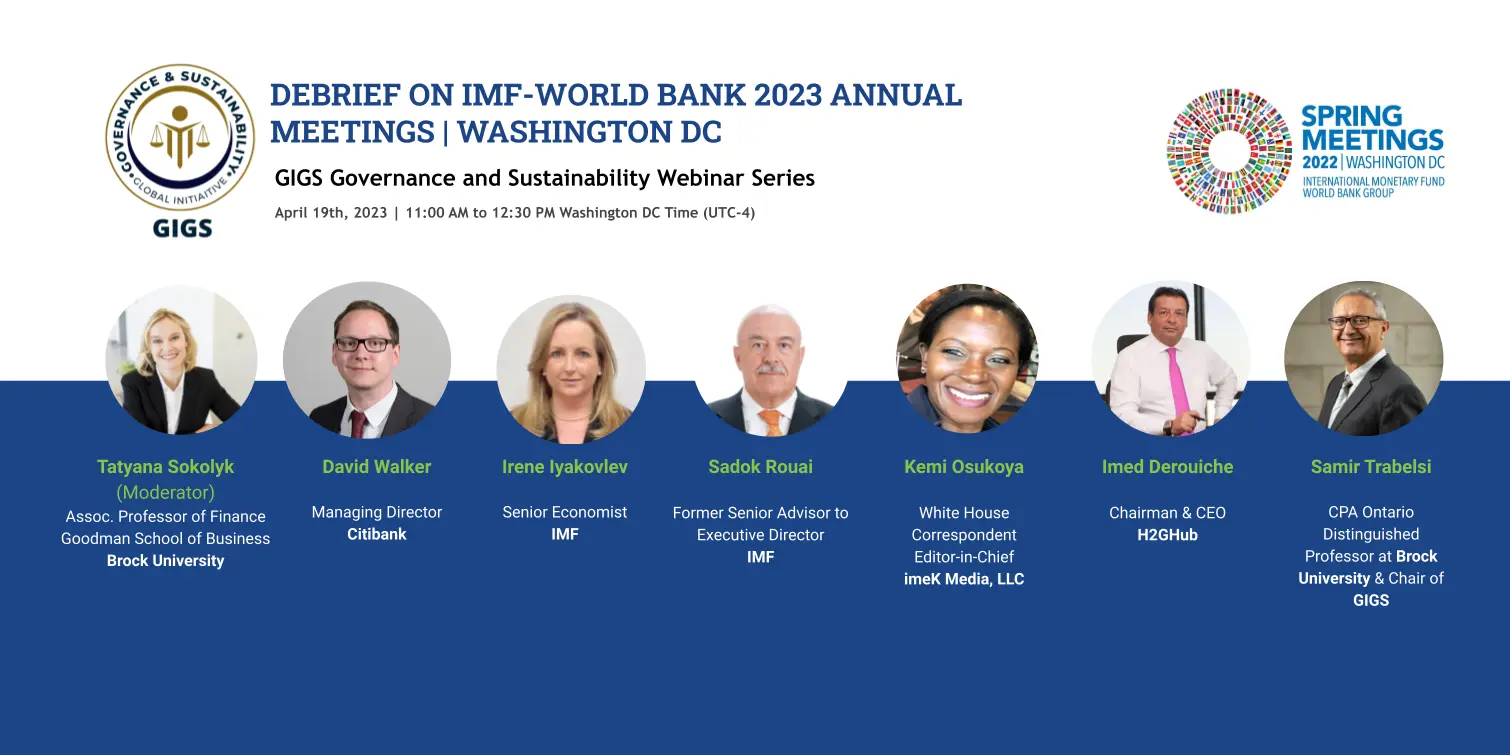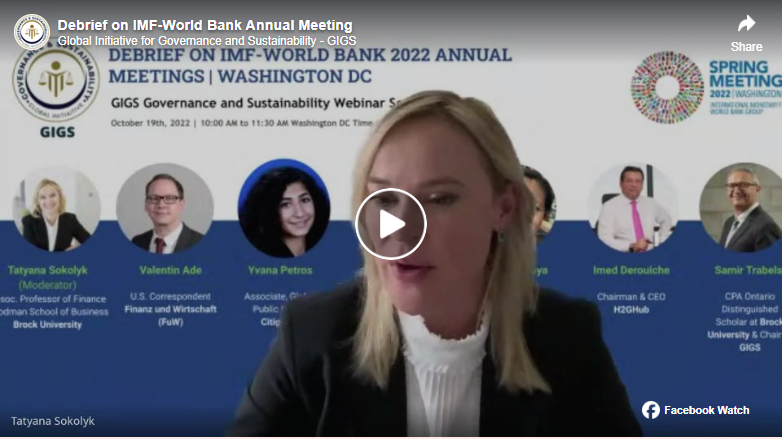Debrief on IMF-World Bank 2023 Spring Meetings
Debrief on IMF-World Bank 2023 Spring Meetings

Description
The debrief will look back on the highlights of the April 2023 IMF - World Bank Spring Meetings. We will explain the institutional background behind these meetings and share key takeaways of the IMF flagship reports, analytical corners and capacity building, and the outcome of the IMFC meetings.
Featuring leading policymakers, academics and practionners, the debrief will look back on the highlights of the April 2023 IMF - World Bank Spring Meetings.
We will explain the institutional background behind these meetings and share key takeaways of the IMF flagship reports, analytical corners and capacity building, and the outcome of the IMFC meeting.
The focus will be on the challenges facing the global economy as the IMF announced cuts to the global growth outlook. We will look at the risks posed by inflation to financial stability, and how countries can benefit from digitalization in a sustainable way.
We will conclude by discussing how countries can build upon these opportunities to undertake knowledge based reforms to mitigate the side effects of these extremely challenging external shocks .


